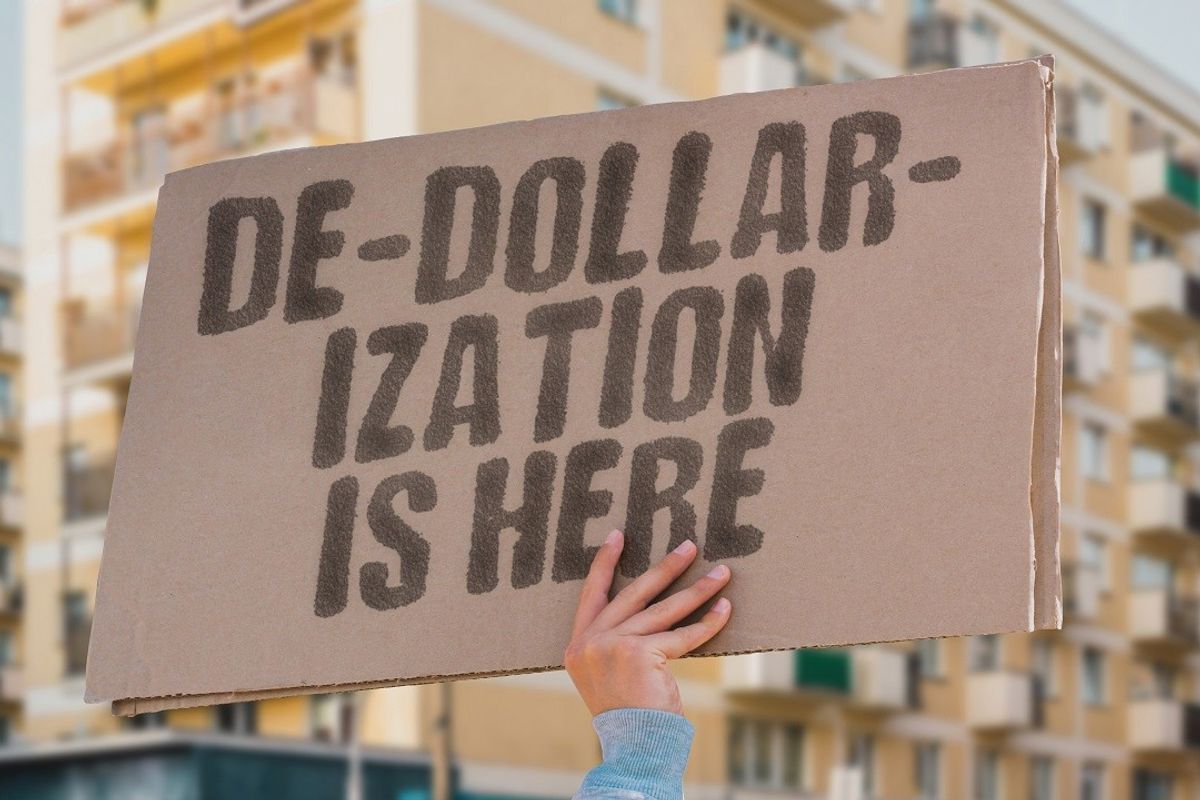Niger, Mali, and Burkina Faso to launch new currency, joining global de-dollarization trend
De-dollarization seeks to minimize dependence on the U.S. dollar in global trade
Business Desk
The Business Desk tracks economic trends, market movements, and business developments, offering analysis of both local and global financial news.

De-dollarization is here
Shutterstock
Niger, Mali, and Burkina Faso are set to introduce their own currency as part of a broader global effort to reduce reliance on the U.S. dollar. This initiative, inspired by the BRICS nations, aims to enhance regional economic independence, according to various news agencies.
Countries around the world are increasingly challenging the dominance of the U.S. dollar. Nations have been endorsing local currencies or proposing new ones to lessen their dependency on the dollar.
The de-dollarization movement has gained traction, particularly following the efforts of the BRICS bloc, which includes Brazil, Russia, India, China, and South Africa. Now, Niger, Mali, and Burkina Faso are preparing to join this movement.
De-dollarization seeks to minimize dependence on the U.S. dollar in global trade, financial transactions, and as a reserve currency. The BRICS group has been exploring alternative currencies for trade, inspiring Niger, Mali, and Burkina Faso to consider launching a new currency of their own.
All three countries, former French colonies, have experienced military takeovers in recent years and are currently governed by military administrations. By introducing a new currency, they aim to adopt a strategy similar to BRICS to further the de-dollarization agenda.
Additionally, they have formed the Alliance of Sahel States (AES), a new defense partnership focused on enhancing regional cooperation.
The AES bloc envisions creating a "West Africa" currency that is independent of the U.S. dollar. The goal is to use this new currency for trade settlements instead of the dollar. General Abdourahmane Tiani, head of Niger's ruling military junta, has highlighted the significance of this move in achieving economic sovereignty.
Despite Brazil's current presidency of the BRICS group, the idea of a common currency for the major developing economies will not be advanced this year, according to four government officials. However, the agenda may still pave the way for reduced reliance on the U.S. dollar in global trade.
U.S. President Donald Trump has issued warnings to the BRICS group, asserting that any attempt to challenge the dominance of the "mighty U.S. Dollar" will face severe consequences, including tariffs. On social media, Trump reiterated his stance, stating, "There is no chance that BRICS will replace the U.S. Dollar in International Trade, or anywhere else, and any Country that tries should say hello to Tariffs, and goodbye to America!"
Brazilian officials, who requested anonymity to discuss plans, indicated that while a shared currency to replace the dollar has been floated by President Luiz Inacio Lula da Silva and others at recent BRICS summits, it has not entered technical discussions. Instead, Brazil is pushing for reforms within BRICS to ease international payments in local currencies, aiming to reduce dollar dependence for global trade.
The agenda includes studying technologies like blockchain and linking payment systems to reduce transaction costs, following standards set by the Bank for International Settlements (BIS). Officials emphasized that the focus is on reducing friction for global trade rather than creating conflict.
While the BRICS countries are exploring these possibilities, they do not intend to eliminate their dollar reserves entirely. Even President Lula has moderated his stance on a new currency for the bloc, while still advocating for the BRICS nations' "right to discuss establishing forms of trade that do not make us fully dependent on the dollar."
Brazil's finance ministry and central bank recently discussed their proposals for the BRICS presidency this year, including cross-border payment initiatives, to further this agenda.










Comments
See what people are discussing